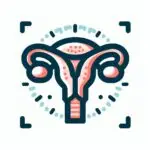Intrauterine Insemination and Conception
Talk to our leading fertility doctor
Speak to us about in person video phone consultations
Intrauterine Insemination
Intrauterine Insemination (IUI) is a widely used assisted reproductive technology. This procedure, often referred to as artificial insemination, involves placing carefully prepared sperm directly into the uterus during the woman’s fertile window. IUI is a less invasive and more affordable option compared to in vitro fertilization (IVF), making it a popular choice for many on their journey to parenthood.
Understanding the Procedure
IUI is a relatively simple and straightforward procedure. Before the process begins, you typically undergo a thorough evaluation to identify the underlying cause of infertility and determine if IUI is an appropriate treatment option.
Ovulation Monitoring:
The key to a successful IUI cycle is timing. Ovulation is closely monitored through various methods, such as ultrasound scans and hormone level tracking. This helps pinpoint the optimal time for the procedure, ensuring that the woman’s egg is released into the fallopian tube, ready for fertilization.
Sperm Preparation:
On the day of the procedure, a semen sample is collected from the male partner or a sperm donor. The sperm is then washed and processed in the laboratory to concentrate healthy, motile sperm and remove any impurities or debris.
Insemination:
Once the sperm is prepared, a thin, flexible catheter is used to gently introduce the sperm directly into the woman’s uterus. This process is painless for most women and is often compared to a standard pelvic exam. The goal is to bring the sperm closer to the egg, increasing the chances of fertilization.
Rest and Recovery:
After the procedure, patients are usually advised to rest for a short period before resuming their daily activities. Some women may experience mild cramping, but these discomforts are typically short-lived.
Success Rates
The success of IUI can vary depending on several factors, including the age of the woman, the cause of infertility, and the number of IUI cycles attempted. On average, success rates for IUI range from 10% to 20% per cycle. Couples may undergo multiple cycles to achieve a pregnancy.
Advantages of IUI
1.Non-Invasive: IUI is a minimally invasive procedure that does not require surgery or extensive medical intervention.
2. Cost-Effective: Compared to more advanced fertility treatments like IVF, IUI is a more affordable option for many couples.
3. Less Stressful: The process is generally less stressful and time-consuming compared to IVF, which often involves hormone injections and egg retrieval.
4. Suitable for Mild Male Factor Infertility: IUI can be a viable option for couples facing mild male factor infertility.
5. Controlled Environment: IUI provides a controlled environment for sperm delivery, increasing the chances of fertilization.
Intrauterine Insemination (IUI) offers hope to couples or women longing to start a family but facing fertility challenges. With its relatively simple and non-invasive procedure, IUI provides a cost-effective and less stressful alternative to more complex fertility treatments. Although success rates may vary, many have achieved their dream of parenthood through this method.
Dr Elgey and team have a proven track record in managing and performing Intrauterine procedures.
Frequently Asked Questions
Common indications for IUI include;
- the use of donor sperm
- female factor infertility
- unexplained infertility
- cervical mucus issues
- the need to bypass minor obstacles in the reproductive tract.
There are three IUI treatment options:
- Natural cycle insemination – This option does not involve any medication and follows the woman’s natural menstrual cycle.
- Ovulation induction –This option involves the use of medication to stimulate the ovaries and cause or regulate ovulation. This medication in combination with IUI has been shown to increase pregnancy rates in comparison to natural cycle insemination.
- FSH ovulation induction – Ovarian stimulation is stronger with this option and has been shown to increase pregnancy rates over a natural cycle and ovulation induction cycles. Regular monitoring is required to minimise complications relating to overstimulation.
Artificial Insemination or IUI treatment is not recommended for:
- Women over 38 years of age.
- Women with tubal blockage or severe tubal damage.
- Women with severe endometriosis.
- Cases where the male partner has a markedly abnormal semen assessment.
- Infection – This may be more common among women with a history of pelvic infection.
- Overstimulation – Some women may experience an excessive response by their ovaries to the fertility drugs. Ovarian hyperstimulation syndrome (OHSS) occurs in a minority of women who over-respond. Symptoms include severe discomfort, nausea, vomiting, abdominal distension and dehydration. It is important that you notify the clinic immediately if any of these symptoms occur during your treatment, as hospitalisation may be required.
- Multiple pregnancy – If there are too many follicles seen on ultrasound before the IUI is carried out, the risk of multiple pregnancy may be too high and the procedure may be cancelled.
- Failed procedure – In a small number of cases, it is not possible to place the catheter into position through the cervix, and the sperm cannot be inserted into the uterine cavity.
I would like to know more about
Why you should choose to see us

Personalised
Care
A team that knows you’re not just a number

Science and Results
Working with alternative options

Telehealth
Options
Video or mobile for your convennience








